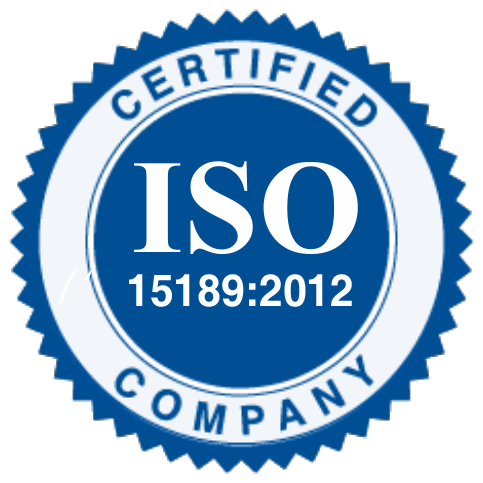NABL (ISO 15189:2012) Accreditation
Ensuring Excellence in Medical Laboratories
In the realm of healthcare diagnostics, accuracy and reliability are paramount. The National Accreditation Board for Testing and Calibration Laboratories (NABL) ensures that medical laboratories adhere to stringent quality standards, providing patients and healthcare professionals with results they can trust. NABL accreditation, based on ISO 15189:2012, is globally recognized and signifies technical competence, operational integrity, and adherence to best practices in laboratory services.
What is NABL Accreditation?
The National Accreditation Board for Testing and Calibration Laboratories (NABL) is an autonomous body under the Department of Science and Technology, Government of India. It is responsible for assessing and accrediting laboratories that demonstrate compliance with internationally accepted standards. NABL accreditation serves as a mark of credibility, ensuring that a laboratory meets rigorous testing requirements, employs validated methodologies, and maintains stringent quality control measures.

Understanding ISO 15189:2012
ISO 15189:2012 is an international standard specifically designed for medical laboratories. It outlines competence requirements, focusing on:
- Quality management systems
- Technical competence of staff
- Accuracy and reliability of test results
- Equipment validation and maintenance
- Patient confidentiality and ethical compliance
- Continual improvement initiatives
Benefits of NABL Accreditation
- Enhanced Trust and Credibility NABL accreditation reassures patients, clinicians, and regulatory bodies of the laboratory’s commitment to excellence. It confirms that results are reliable and based on rigorous testing protocols.
- International Recognition NABL-accredited labs are acknowledged globally, streamlining collaborations and enabling seamless exchange of medical data for research, diagnostics, and treatment planning.
- Regulatory Compliance Accreditation ensures that laboratories comply with national and international standards, reducing legal and operational risks.
- Improved Operational Efficiency Implementing ISO 15189:2012 protocols enhances workflow efficiency, minimizes errors, and optimizes resource utilization.
- Competitive Advantage Accredited laboratories gain a competitive edge by demonstrating commitment to quality, attracting more patients, referrals, and research collaborations.
The Accreditation Process
Laboratories seeking NABL accreditation must undergo a structured assessment process:
- Application Submission Laboratories submit their application along with required documentation demonstrating compliance with ISO 15189:2012 guidelines.
- Pre-Assessment NABL conducts a preliminary review to identify areas requiring improvement before the full audit.
- On-Site Assessment Qualified assessors evaluate laboratory facilities, testing procedures, equipment, and quality control measures.
- Corrective Actions & Compliance Laboratories must address any deficiencies and implement corrective actions suggested by NABL assessors.
- Accreditation Approval Upon successful evaluation, NABL grants accreditation, valid for a specific period with periodic surveillance audits to ensure sustained compliance.
Why NABL-Accredited Laboratory?
Selecting an NABL-accredited laboratory ensures that patients receive accurate, reliable, and timely test results, reducing misdiagnosis risks and enhancing treatment precision. NABL accreditation signifies adherence to globally recognized standards, reinforcing patient confidence in laboratory services.
As healthcare evolves, the need for standardized, high-quality, and competent laboratory services becomes increasingly crucial. NABL accreditation under ISO 15189:2012 plays a vital role in maintaining laboratory excellence, fostering credibility, and promoting ethical and efficient diagnostic practices.